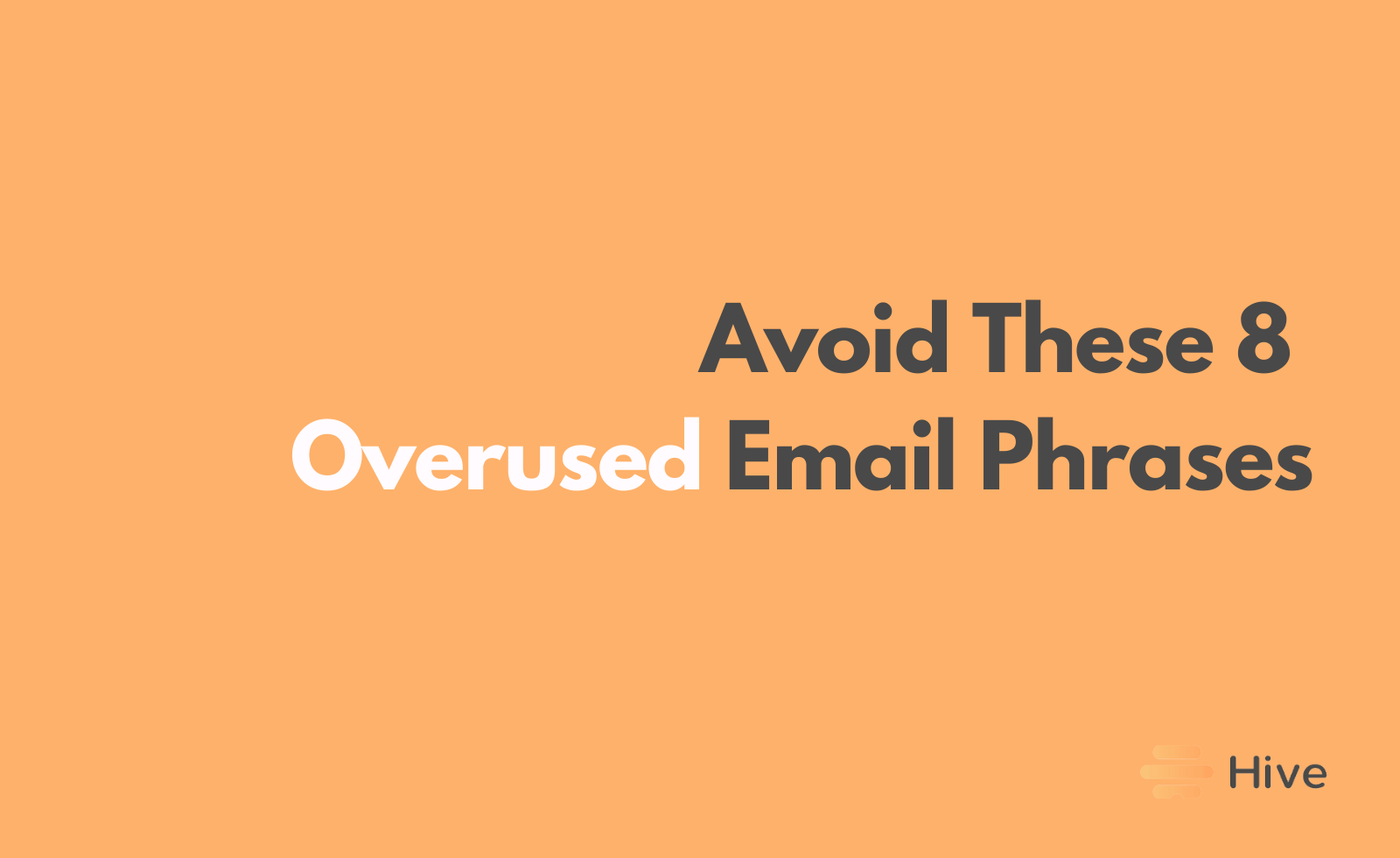
Avoid These 8 Overused Email Phrases If You Want to Land The Interview
We’ve all received emails that are filled with cliched work phrases. And we probably roll our eyes and move on. But we ourselves are often guilty of using them, too.
When you’re trying to land an interview, it’s especially important to avoid overused phrases in your email. Here are eight common email phrases to nix from your vocabulary and alternatives to try instead.
1. “As per my last email”
Yes, you want to remind the interviewer that you have previously communicated on this topic, but this is a little abrupt. Instead of using a different phrase, it’s best to just not use this one at all. It will be implicit from that content that you’re following up.
2. “To Whom It May Concern”
Here’s a greeting that too many candidates use in their cover letters and other communication. But like anyone else, hiring managers and recruiters prefer a personalized approach. Sometimes, you will need to do some research to find an actual name. If you absolutely can’t, try “To the Hiring Manager” instead — although not ideal, this is a step up from “To Whom It May Concern.”
3. “Just letting you know”
“Just” is an overused word in emails, one women, in particular, employ far too often. By sending the email, you’re letting the recipient know about the content — and you don’t need to state the obvious with extra words.
4. “Just checking in”
Again, JUST stop saying JUST. You want to sound breezy, but if this is important to you, then you shouldn’t downplay the importance of your message.
5. “Thanks in advance”
This phrase comes off as a little presumptuous, as well as naggy. It suggests that you’re concerned that the recipient might not do what you’re asking them to do. The fact is, you don’t have any control over whether or not they do it, and you will only irritate them by thanking them in advance. Try a simple sign-off instead — “Thanks,” “All my best” or an alternative.
6. “Hope you’re well”
Some people consider this opener trite. Rather than using a generic line, be specific and dive right in: “I enjoyed our conversation about X,” for example, or “I’m so glad we could connect.”
7. “I’m sure you’re busy”
The contact probably IS very busy, and you acknowledging that isn’t something they’ll find very helpful. This is another one to just eliminate from your email vocabulary — if it’s worth emailing, then you don’t need to point out that the recipient is busy.
8. “Any updates on this?”
Many people find this off-putting. Yes, there are times when you haven’t heard back about something important (like the status of your candidacy), and that can be very frustrating. We’re not saying you should never follow up but consider your language. Try conveying your enthusiasm, rather than using a naggy approach. “I’m still very excited about the role” should do the trick.
Yes, these may creep into your communication from time to time, but if you want to come across as more professional and confident, try to avoid them as much as possible.

